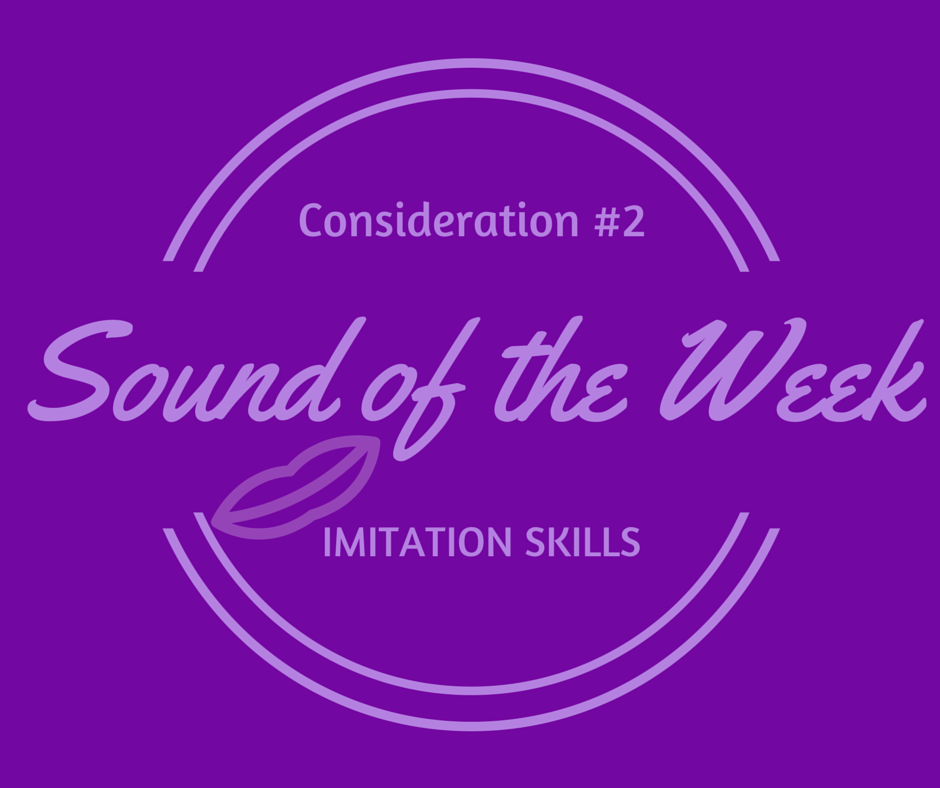Sound of the Week: before we begin, consideration #2

Oh my! Anyone else experience a time warp??? Time to get back to the "Sound of the Week" posts! What is the "Sound of the Week" project? Read this post to find out.
Let's continue with items to consider before directly targeting speech sound production with children exhibiting significant speech disorders. When I last posted about the Sound of the Week project, I focused on what I consider to be priority #1. We need to keep our eye on the ultimate prize: functional communication. For a refresher (because it has been, ahem, a little while) or if you missed it, go read about Consideration #1: Functional Communication, then come on back to read about Consideration #2.
Consideration #2: Imitation Skills
Did you know that the ability to imitate is a skill that typically develops during the first year of life? Imitation skills are essential to child development. Children learn through observation, imitation, and experimentation. The ability to imitate is critical to speech development. Babies listen to and watch us talk all day every day. About the time that first words start to emerge, most children have been experimenting and playing with sounds for many months and have honed their ability to imitate sounds and sequences of sounds (words). They develop speech through imitation. Children with motor speech difficulties often miss or struggle through this stage of development, which can result in a lack of or delay in the development of this fundamental skill. They do not naturally develop the ability to imitate or play with orally produced sounds. Because imitation skills typically develop so early and seemingly effortlessly, it is easy to assume that every child "knows how" to imitate.

Imitation skills are, of course, not "it". As the case examples in Consideration #1: Functional Communication clearly illustrate (see "Mike"), imitation skills alone do not ensure a child will be a functional verbal communicator. This is where behavioral approaches to speech and language sometimes fall short. Being able to imitate sounds or words does not automatically mean the child will use those sounds/words to functionally communicate verbally. But imitation skills are critical to the process. Imitation skills do not guarantee a child will become a verbal communicator, but a lack of imitation skills will significantly impede a child's progress toward becoming verbal. We need to ensure that we are meeting the child at the level they are at and moving incrementally from there.
We need to take into consideration a child's ability to imitate. If you are trying to get your child to imitate sounds or sound combinations (e.g. syllables/words) and it seems as though they are making no attempt to do so or it feels like you are getting nowhere, it may be that you need to step back and consider first targeting their imitation and "pre-speech" skills.
Disclosure: This post contains affiliate links for your convenience.
 Saturday, August 8, 2015 at 10:32PM
Saturday, August 8, 2015 at 10:32PM  Post a Comment →
Post a Comment →  apraxia,
apraxia,  speech | in
speech | in  Child Development,
Child Development,  Letter of the Week,
Letter of the Week,  Sound of the Week,
Sound of the Week,  Speech,
Speech,  books
books
Reader Comments